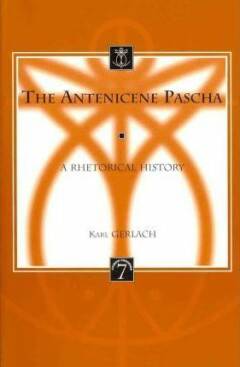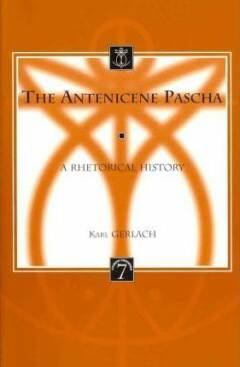
Je cadeautjes zeker op tijd in huis hebben voor de feestdagen? Kom langs in onze winkels en vind het perfecte geschenk!
- Afhalen na 1 uur in een winkel met voorraad
- Gratis thuislevering in België vanaf € 30
- Ruim aanbod met 7 miljoen producten
Je cadeautjes zeker op tijd in huis hebben voor de feestdagen? Kom langs in onze winkels en vind het perfecte geschenk!
- Afhalen na 1 uur in een winkel met voorraad
- Gratis thuislevering in België vanaf € 30
- Ruim aanbod met 7 miljoen producten
Zoeken
€ 80,95
+ 161 punten
Omschrijving
Beginning with "spiritual" interpretation and anti-Judaic polemic to secure the Pesach institution narrative (Ex 12) for Christian proclamation, major centers of Asia Minor and Syria, then Upper Egypt and the West, develop distinct rhetorical structures that load first the day, then the date of Pascha, with theological meaning. The emergence of the four-gospel canon at the end of the second century enriches, but does not supplant, a dialogue between Christian rituals and the scriptures inherited from Judaism. The Antenicene Pascha takes a fresh approach to the scattered literary remains of the earliest paschal feast by acknowledging them for what they are: relics of heated disputes about ritual boundaries that had elevated the Pascha, an observance with no explicite reference in first century literature, to an icon of unity and orthodoxy at the Council of Nicaea. Just as these disputes repeat familiar patterns of establishing Christian identity, much modern scholarship employs hermeneutical categories derived from other conflicts (Great Schism, Reformation) that often obscure, rather than reveal, the history of the paschal celebration. This book will be of value not only to students of the liturgy, but also to those interested in the history of biblical hermeneutics, the canon, and the roots of Christian anti-Judaism.
Specificaties
Betrokkenen
- Auteur(s):
- Uitgeverij:
Inhoud
- Aantal bladzijden:
- 434
- Taal:
- Engels
- Reeks:
- Reeksnummer:
- nr. 7
Eigenschappen
- Productcode (EAN):
- 9789042905702
- Verschijningsdatum:
- 1/01/1998
- Uitvoering:
- Paperback
- Formaat:
- Trade paperback (VS)
- Afmetingen:
- 152 mm x 229 mm
- Gewicht:
- 612 g

Alleen bij Standaard Boekhandel
+ 161 punten op je klantenkaart van Standaard Boekhandel
Beoordelingen
We publiceren alleen reviews die voldoen aan de voorwaarden voor reviews. Bekijk onze voorwaarden voor reviews.









